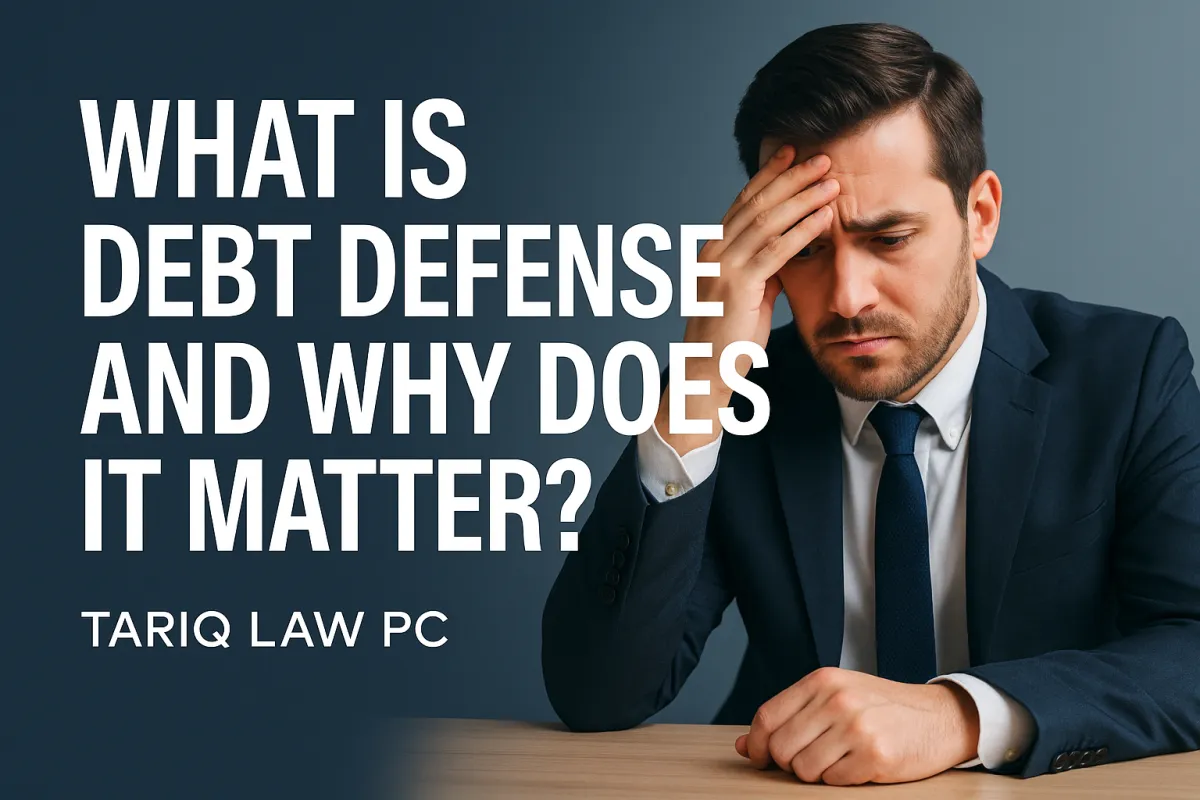
What Is Debt Defense and Why Does It Matter?
If you’ve been sued over a debt, you’re not alone—and you’re not powerless. Every day, hundreds of New Yorkers face debt collection lawsuits. Many ignore the papers. But here’s the truth: You have legal rights—and in many cases, you have a strong defense.
What Is Debt Defense?
Debt defense is the legal strategy used to fight debt collection lawsuits. When a creditor or debt buyer sues you, they must prove their case in court. This includes:
Establishing that you owe the debt
Showing they legally own or control the debt
Demonstrating the debt is within the statute of limitations (§ 214‑i under the NY Consumer Credit Fairness Act)
Following all procedural and legal rules
If any element fails, the court may dismiss the lawsuit.
Why It Matters
1. Inaction Often Leads to Default Judgments
Most debt collection cases result in default when the defendant never responds. This allows the collector to:
Freeze your bank account
Garnish your wages
Damage your credit
Add thousands in fees and interest
Filing a legal Answer stops that process and preserves your right to defend yourself.
2. You Might Not Even Owe the Debt
Debt buyers frequently sue with flawed records—incorrect amounts, outdated information, or even the wrong person. In many cases:
The debt was already paid or settled
The collector can’t prove proper ownership or chain of title
If they lack evidence, you have a strong chance to win—or at least force dismissal.
3. Even If You Owe, the Law Protects You
Federal (FDCPA) and New York laws protect consumers. Collectors cannot:
Harass or use deceptive practices
Seek unlawful fees or interest (some interest caps apply)
Sue on time‑barred debts without proper notice
If collectors violate your rights, you may be able to sue them and recover damages.
Common Legal Defenses in NY
New York consumers may leverage a range of defenses in debt collection cases:
Statute of Limitations (time‑barred debt): NY law now sets a 3‑year limit on consumer credit lawsuits, effective April 7, 2022 (§ 214‑i).
Mistaken identity or misattribution
Already paid or settled debt
Debt was discharged in bankruptcy
Debt buyer lacks license or fails to list license in complaint (NYC requirement).
Your First Steps
If you’ve been served, don’t panic—act:
Carefully read the Summons and Complaint. Understand exactly what you're being sued for.
Check your deadline. In NY, you typically have 20–30 days to file an Answer.
File an Answer. Raise defenses like statute of limitations, chain-of-title issues, or licensing problems. Not filing risks default judgment.
Contact a debt defense attorney. At Tariq Law PC, we help challenge weak cases, protect your rights, and even pursue claims when collectors violate the law.
Bottom Line
Debt defense isn’t about avoiding responsibility—it’s about making sure collectors follow the law. Many lawsuits can be dismissed, reduced, or negotiated—but only if you take action.
If you’ve received a summons or are experiencing collector harassment, contact Tariq Law PC today for a free consultation.
